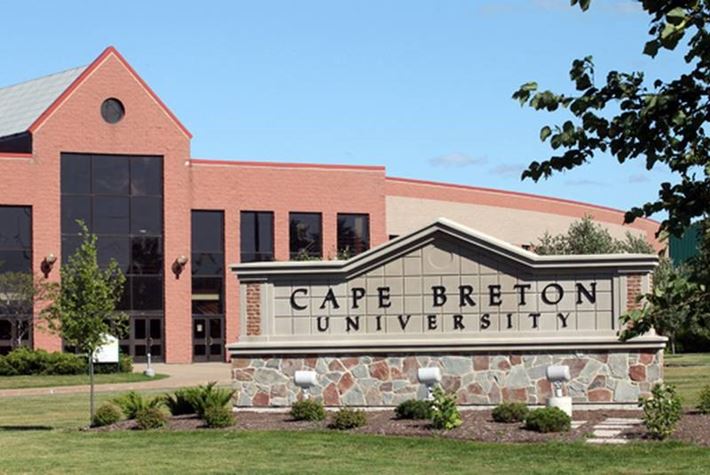My previous two posts (1) (2) were imagining Cape Breton as a province or territory, but this time I want to take a detour towards something else: our education system. In my first post, I posted what could be CB's high school graduation requirements (grades 9-12), by merging Ontario and Nova Scotia's requirements into a version that improves students' ability to work and engage with a community, while also keeping the higher end of math and science curriculum. In this post, I want to focus on post-secondary education, specifically in the arts and social sciences.
I graduated from Cape Breton University in 2018 with a 3-year Bachelor of Arts Community Studies degree, however I spent four school years to get it. It was a combination of acquiring some additional credits and dropping course loads. I have a concentration in Communication, and some other courses in English and Political Science, but I wouldn't say I am a professional in any of those areas.
From my years at CBU, I've noticed that the first and second level courses provide the fundamental education in any department, while the third and fourth levels are more specialized, with a fair share of them tending to have less than a dozen students (except for distance courses, they fill up at midnight of course selection openings). Out of the first and second level courses, the ones I favoured the most were courses like those in Community Studies and Communication, because they act as a platform to achieve in all other things. In fact, I thought numerous times I should have learned those things in high school than in university. But I understand the professionalism of working in a group, engaging with community group projects and performing research for those groups, as well as developing the ability to engage with your colleagues at a more professional level.
However, over the past decade or so, we have witnessed tuition rise beyond affordability, and we have seen the degradation of the standard of post-secondary education, because higher education is more available today than ever before. Then with more graduates (or drop outs), we have almost an entire generation that is in heeps of debt to the government over students loans. We are living in a time when, unless you already have a career lined up, you may be financially better off living your life debt-free on minimum-low wage jobs than to go $30k+ in debt and spend 10-20 years of your life paying it off. And those who do follow through with minimum-low wage jobs may never go higher, because to do so requires a university degree or equivalent. Kudos to those who escape student debt.
To be productive, I want to share a creative idea for post-secondary education that Cape Breton (or CBU in particular) can take advantage of. It might not be the #1 strategy against student debt, but I believe it could deal a heavy blow to the problem, while also attracting more students to Cape Breton for education (or keeping local students at least). Part of the problem is that (I believe) CBU's education is standardized, and aside from the Special Topics courses, offers little uniqueness compared to other Canadian universities in the value of its education. But I'm not an expert in curriculum design, so I'm just going to come up with a degree that could possibly generate a higher standard just by rearranging CBU's current course offerings. Although, I also believe that CBU's Community Studies curriculum is a step in the right direction, and should be a focus of this version.
For reference, here is a link to CBU's academic calendar where you can find the requirements for a BA and BACS, under School of Arts and Social Sciences.
Associate of Arts Degree
2-year program, 60 credits
At CBU, 6 credit courses are full year courses, and 3 credit courses are half-year courses. Levels are divided by the thousands, where first level courses are 1000 level, etc.
Core Requirements: 24 credits
6 credits in English
6 credits in group and community-based learning
6 credits in communication and critical thinking
3 credits in professional research (at 2000 level)
3 credits in placements or project-based learning
Electives: 36 elective credits
Additional Requirements:
-
At least 24 credits earned must come from a single discipline (concentration), of which at least 6 credits are at the 3000 level or higher.
-
Of the 60 credits required for a 2-year Associate of Arts degree, no more than 36 credits shall be at the 1000 level.
It's a fairly simple list. Basically, this program would act as a starting point for students coming out of high school. It should be enough to get you into an internship, entry-level position, or into a specialized college program. The AA sorts out the fundamental education, so the rest of your 3-4 years are not wasted on electives and degree requirements that do not contribute to your career of choice. All the while, you shave off a lot of unnecessary bloat to your student debt, especially when followed by a college, diploma or certificate program and not just upgraded to a Bachelors.
Well that's it. If you have any feedback or criticism to add, please comment.





3
Log In or Sign Up to add a comment.- 1
arrow-eseek-e1 - 2 of 2 itemsFacebook Comments